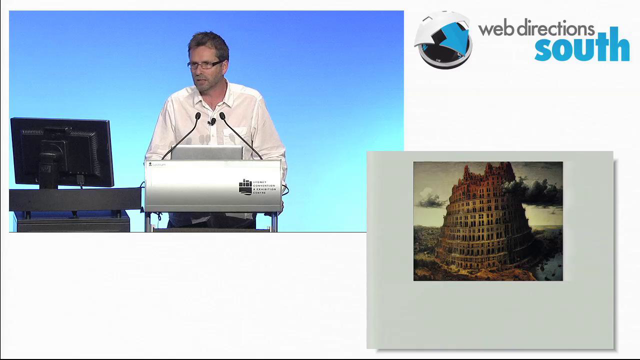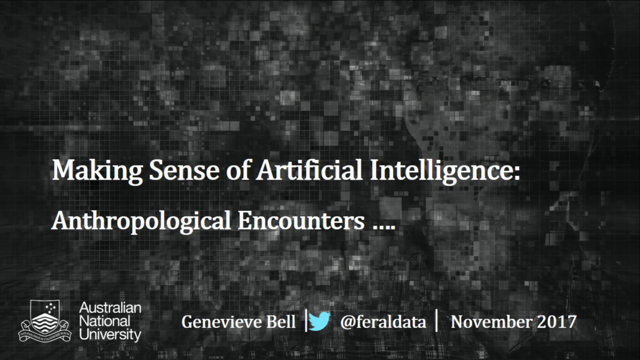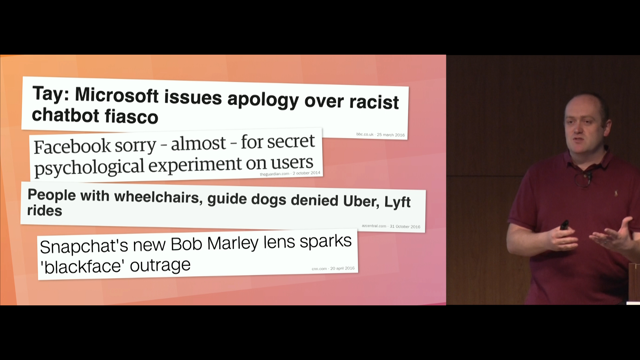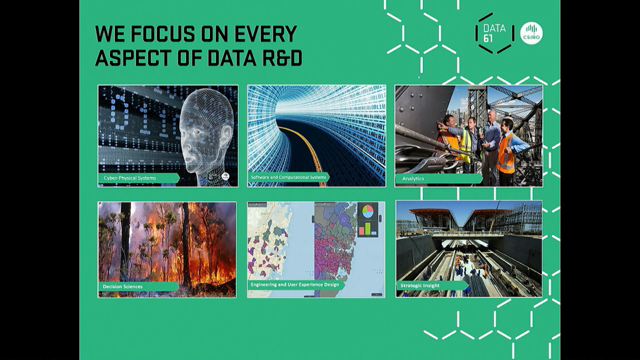Why We Need Fiction

The Blurring Lines Between Fiction and Reality
Joan Westenberg opens with a light-hearted acknowledgment of the audience's distraction, setting the stage for a discussion on the complex relationship between fiction and reality. She introduces the theme by referencing a biblical quote to highlight the age-old question of truth. Westenberg argues that distinguishing between fiction and reality is increasingly difficult in today's world, where AI tools blur these lines further. This segment establishes the foundation for exploring how stories and truth interact in contemporary society.
The Power of Stories in a Post-Truth World
Westenberg discusses the concept of a "post-truth" world, using the 2024 US election as an example of how stories can overshadow facts. She explains that while facts are often dull, stories captivate and engage people, influencing political outcomes. This segment delves into the idea that stories are an ancient technology used to convey information, often more effectively than raw data. Westenberg highlights how stories have historically been used to communicate warnings and cultural values, creating a rich tapestry of narratives that shape our understanding of the world.
The Cultural Debt of Stories
In this segment, Westenberg explores the concept of cultural technical debt, where accumulated stories create conflicting narratives that may no longer be relevant. She argues that while objective truths exist, they are often overshadowed by compelling stories. Westenberg emphasizes the importance of fiction, noting its role in entertainment and cultural identity. She challenges the notion that fiction should be discarded in favor of facts, advocating for its continued value despite the threats to truth in modern society.
Fighting Fiction with Fiction
Westenberg proposes that in a world where stories dominate, the solution is to craft better narratives rather than relying solely on facts. She acknowledges the difficulty of competing with false stories using truthful ones, suggesting that the key lies in storytelling that resonates with audiences. This segment underscores the importance of engaging narratives in influencing public perception and political landscapes, highlighting the challenges faced by those who prioritize truth.
The Role of Human Imagination and the Future of Fiction
Westenberg concludes by reflecting on the necessity of human imagination in a world increasingly influenced by AI. She argues that while grounding in reality is essential, flexibility and creativity are crucial for persuasion and survival. Westenberg posits that storytelling is vital for maintaining humanity and preventing a dystopian future. She leaves the audience with a thought-provoking message about the ongoing battle for truth and the enduring significance of fiction, urging reflection on these themes.
Lot of laptops here today.
Show of hands, who's been doing online shopping instead of listening?
Anyone?
Yeah, a few of you.
Yeah, me too.
I bought this thing where you, stick your phone into a MagSafe case and it makes it into an ebook reader.
It's made by some company.
I dunno, it was 50 bucks.
I was bored.
Not bored of the speakers, bored of just being me.
It's exhausting.
So I'm supposed to talk about fiction, and that's an interesting topic.
It's something I've written about a lot, why we need fairytales and things of that nature.
The really tricky thing is that it's getting harder and harder to determine what is fiction and what's not fiction.
So it's almost like doing a talk about why we need the thing that all of us are building AI tools to make everything into the thing and so on.
So I'm gonna start with a Bible quote 'cause I'm a really good Catholic.
I'm sure you can all tell.
So John 1836, Jesus said, my kingdom is not of this world.
If it were my servants would fight to prevent my arrest, but now my kingdom is from another place.
You are a king, then said Pilate.
Jesus answered.
You say that I'm a king.
In fact, the reason I was born and came into the world is to testify to the truth.
Everyone on the side of the truth listens to me.
Truth.
What is that?
Retorted Pilate.
Now that's been an ongoing refrain for about 2000 years.
What is truth?
What does truth mean and why does truth matter?
Pontius was asking it in the verse that we call jesting With Jesus.
He's essentially saying, you are saying one thing.
The people who are imprisoning you are saying another.
Why do we know?
How do we know what's true?
Which brings us to 2024.
We are living in, and I hate to use the phrase, 'cause it sounds like a substack, wanker phrase, but the post-truth world, and what that means is that it doesn't actually matter what's true and what's not anymore.
If you look at the 2024 US election, it was an election about facts versus truth.
Facts are boring as fuck.
Nobody really cares about facts.
They are so dry, but stories are really exciting and in its simplest form.
That's pretty much why the Democrats lost in the Republicans won, because the Democrats had some really cool facts.
They had some really interesting things that were true about the economy and the state of the world and the kind of world we wanna live in.
And the Republicans had some really good scary stories about how people like me are gonna groom your children.
And those stories are exciting, because there's a villain and that villain has terrible plans and terrible designs on the world, and you have to fight evil and so on.
And when people tell you that kind of story, you get so fucking stoked.
And you get way more stoked than you do.
When the Democrats point to the Dow Joan Index, the Dow Jones Index, whatever it is, one of those things, Democrats have these great facts.
The Democrats lost because of these great facts.
What does that leave us with?
So it leaves us with stories.
Now stories are what I like to call another, little substack, wanker phrase of mine.
The oldest technology we have.
And I call it a technology 'cause it's something that we developed and invented.
We came up with stories.
So that we could share information.
Like I said, information is boring.
Even if that information is, Hey, don't go and play in the forest.
There's a bear in there.
That's, a boring piece of information.
But if you make that story, you know what?
Your cousin fag went and played in that forest and we found pieces of him everywhere.
That's a story.
You're gonna remember that, and that's why we started telling stories.
That's why we embraced the story as a tech format.
And over the ages we kept on passing down all of these different stories.
Don't go and wash in that river.
Don't go and eat that food.
Why?
It's not because you're gonna catch a disease.
It's because story, parable, myth, religion, idea, and this stuff catches on.
It catches on and, people pass it down and they pass it down and it builds up into what we might call cultural technical debt.
We have these masses of stories that have built up around us.
A lot of them are conflicting stories, stories about why that forest is bad are no longer really compatible with why we should go into that forest and forestage for berries, and it's no longer compatible with, we destroyed that forest that we could put up a parking lot.
All of these things they keep on building up as stories and we keep on referring to them, but they don't matter anymore because it's all this technical debt of stuff that is incompatible with where we are.
And the more we build these stories and the more we tell these stories, the more we dig ourselves into this hole where we are just surrounded by narratives, by fairytales, by one step upon a time.
So what we have now is a world where we have the idea of objective truth facts.
And we can claim that we know what those are, right?
And that we can claim.
I'm here in Sydney and I'm doing a talk to a room full of people and sure that's a verifiable fact.
And that's fine.
We know that.
And standing in this room, we know that.
But I can tweet that from my bedroom or I can tweet that from my bath.
And most of the people who follow me don't know if it's true or not.
And so it's not that truth doesn't matter anymore.
It's not that truth doesn't exist, it's that stories supplanted truth in the minds of most people.
So fiction.
Where does fiction come into all this?
It's an interesting idea, isn't it?
We have this notion that truth is very important and we have this threat to truth that it's getting supplanted by all these stories, but at the same time, fiction really matters to us, doesn't it?
Who's been to the movies this month?
Did you see a Marvel movie, a Star Wars movie?
Something like that?
It's all the same stories, right?
It's all the same fables that I've been talking about before.
But they're very important, you really enjoyed that.
It was a fun thing to do with your partner, with your family, something like that.
And people will go to the mattresses for movies and for books and for novels and for these things that are at their core, a representation of made up information.
We make stuff up, we use our imagination.
And that's really important, isn't it?
And nobody here is going to say, Hey, you should stop writing fiction.
Hey, you should stop reading fiction.
I did see a tweet from a crypto blogger about why, novels weren't important.
'cause you could learn more from a YouTube video.
But, I dunno what to tell you about that one.
I'm gonna fire that one away.
I'll write something about it.
But what I'm getting at here is this idea that.
We have to assign some value to fiction, right?
And if we're talking about truth being valuable and we're talking about truth being under threat, that can't then mean that we have to abandon fiction because it's not called hard facts.
That's not the end point that we can reach.
Why is that not the end point we can reach?
Why does that make us uncomfortable?
If I stand here and I say because truth is under threat.
We have to get rid of every single Harry Potter.
Actually, no, I'm okay with that.
If, truth is under threat, we have to get rid of every single nine year book.
That makes everyone uncomfortable, right?
That kind of book burning of Fiction, nobody wants that.
Can we make a case that in a post-truth world fiction is still important.
Can we make that case?
I'm gonna go back to that, election that happened either this year or last decade, or at some point in the last hundred years, depending on my emotional state and my perception of the world.
Like I said, the Dems lost 'cause they had facts and the Republicans won 'cause they had stories.
So how do you fight that?
How do you fight the stories about the villains and the monsters under the beds, whether or not they're Matt Getz or me?
How do you fight that?
You can't do it with facts.
You can't do it with the numbers because A, people don't trust that truth matters anymore or even exists, and B, people don't trust sources and C numbers are boring.
So how do you fight it?
The obvious answer is that you have to fight fire with fire, which is a really weird saying ' cause it doesn't work in, the actual literal sense of it.
You go to a bush fire and you start throwing matches at it, it does not fucking work.
But in the context of the hellscape, that is reality.
The idea is that you have to tell better stories than the other side because the stories are the only thing that people are gonna get on board with.
And that's tough because stories and fact and fiction are being drawn along pretty polarized, partisan lines.
It's almost like the Democrats and the progressives and people probably like a lot of us, have decided that we have truth.
We know what truth is and we have facts and we have those quaint things that are like morals and values and all that kind of stuff.
We have all those and the other side don't.
Which means that you have to ask the question, how do we compete with stories that are absolutely fundamentally false by telling stories that are absolutely fundamentally true?
And how do you do that?
I don't really have an answer to that question because it's very thorny.
I think the question itself might miss some of the overarching point here.
Which is not whether you can tell a story about truth or facts or fiction or anything like that.
The question is, can you tell a story that people are going to listen to?
Forget everything else, forget all the jargon, and the nonsense and the bullshit is the cause or the idea or the concept that you have something that you can tell a story about.
And if it's not, you're probably gonna keep on losing.
And if it is, why aren't you?
So what we look at when we talk about like fiction at the moment in terms of AI and things like that it's human imagination right now.
We need human imagination.
We've gotta be able to think up iPhones and goblins and orks and so on.
It's what keeps us alive.
But you've gotta be able to ground yourself in some sense of reality or you've lost everything, but you've gotta be able to make reality malleable, or you can't persuade people, but you've gotta be flexible to respond to things that people come up with.
It's this absolute quagmire, and there's no real clear answer to the question.
Does fiction have a point in a post-truth world?
Now I'm gonna say that I have decided that I have the answer.
I have thought about this for a decade and a half.
I haven't, but it's a story.
I've thought about this for a decade and a half, and I have decided that this stuff matters because if it doesn't we're gonna wind up in a dystopia and we're gonna wind up in a dystopia where everything is gray and nasty and cold.
And the only way out of that dystopia is to remember what makes us human.
And the only way to remember what makes us human is to tell better stories.
The problem with that is it's just a story and you all have to make it up as you go along, and I can't really give you an answer.
So this whole talk has really been a circular thing to get back to the idea that nothing matters and death is inevitable.
If I can give you a takeaway though it's this.
Truth is under attack.
Truth is under attack.
It's really hard to tell what's true and what's not anymore.
Fiction isn't true, but it still matters and I can't quite define why.
But this is something everyone should be thinking about 'cause if we don't, we're probably fucked.
Thank you.
Stories Still Fucking Matter in a Data-Driven World.
We’re living in the age of information overload. Time is precious. Why not cut to the chase and absorb knowledge in its purest form?
Because that’s not the way knowledge works.
Sometimes, the only way to really get at the truth is through a lie. And that’s not just a metaphor — it’s a fundamental aspect of how our brains work, how we learn, and how we grow.















